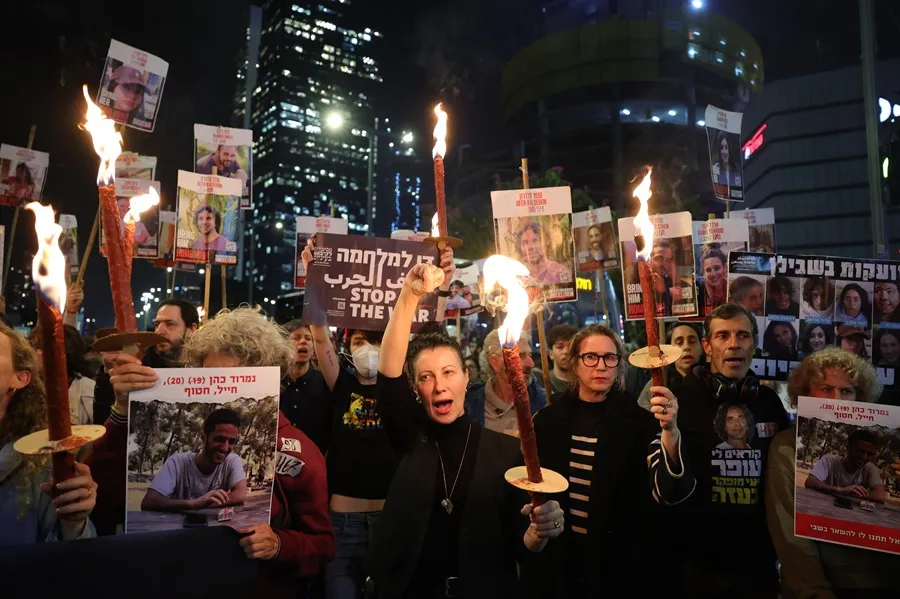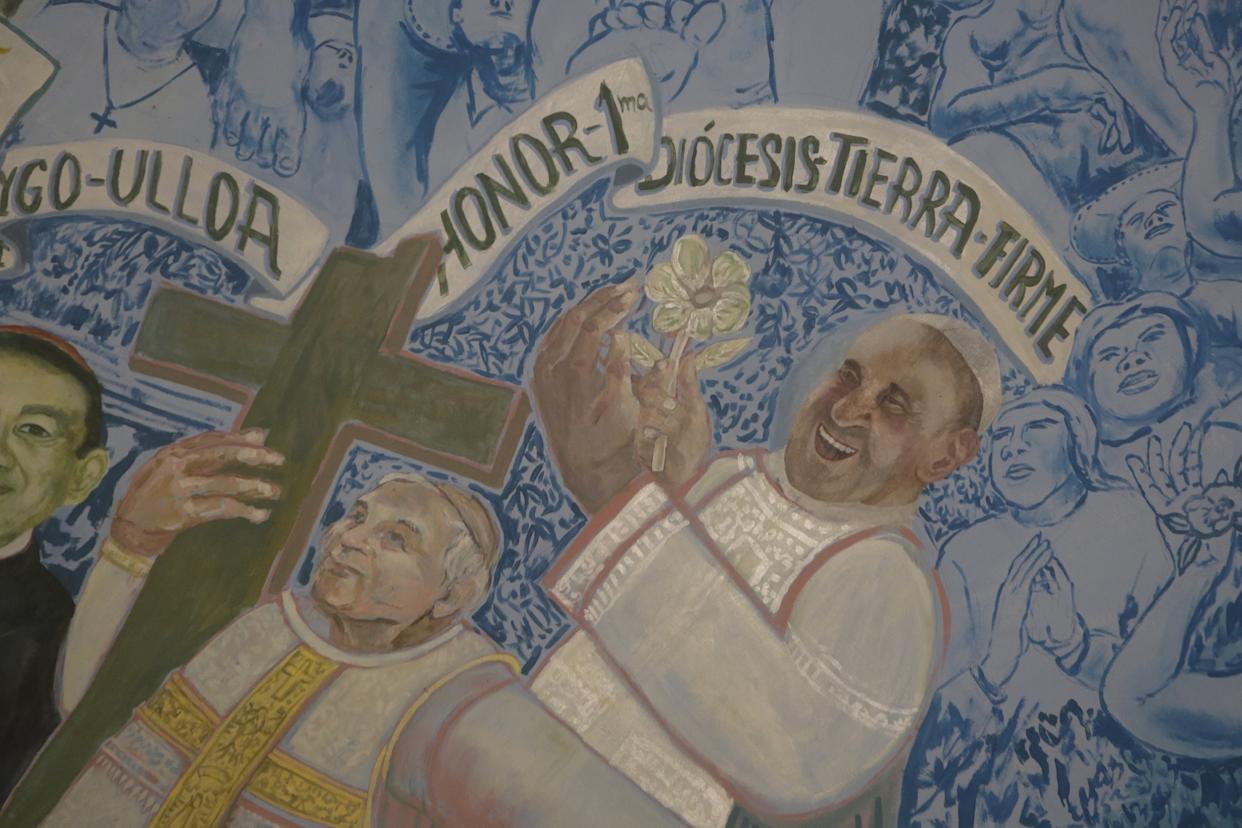International
The Government of Israel accuses Hamas of wanting to modify the truce agreement and postpones its vote

The Office of Israeli Prime Minister Benjamin Netanyahu accused Hamas on Thursday of creating a “last-minute crisis” after allegedly trying to modify details of the draft ceasefire in Gaza announced yesterday by Qatar, and assured that the Israeli government will not approve its implementation until the disagreements are clarified.
“Hamas violates parts of the agreement reached with the mediators and Israel in an effort to extort last-minute concessions,” the Israeli president’s office denounced today. “The cabinet will not meet until the mediators notify Israel that Hamas has accepted all the elements of the agreement.”
In a statement in response, Hamas said that “it is committed to the ceasefire agreement, announced by the mediators.” For his part, Basem Naim, a member of Hamas’ political bureau, told EFE that he did not know what Netanyahu’s words about new demands meant.
One of the spokesmen of the Islamist organization, Sami Abu Zuhri, blamed Israel on Thursday for seeking to “create tension at a critical moment” and demanded that the US administration force compliance with the agreement.
The Directorate of Kidnapped, Repatriate and Disappeared of the Netanyahu Office informed the families of the kidnapped early of the setback in the negotiations.
The Government meeting, which was scheduled for this Thursday at 11:00 am (9:00 GMT), is thus postponed indefinitely until the discrepancies are resolved, but Israeli local media say that it could be held this afternoon.
In addition to all this, Israeli Finance Minister Bezalel Smotrich announced that his party would leave the coalition government of Prime Minister Benjamin Netanyahu if he does not commit to resuming the war in Gaza “immediately after” the end of the first phase of the ceasefire agreement.
This morning, Netanyahu’s Office reported, in a first statement, that the prime minister had spoken by phone with the Doha mediators, who informed him that Hamas was trying to move away from what was already agreed on May 27, by wanting to choose who will be the prisoners released in an exchange for hostages.
“Among other things, contrary to an explicit clause that grants Israel the right to veto the release of mass murderers who are symbols of terrorism, Hamas wants to dictate the identity of those terrorists,” the text denounces, in what it describes as “blackmail attempts.”
However, Basem Naim, a member of the Hamas political bureau, told EFE that he did not know what Netanyahu’s words about new demands referred to.
According to the public broadcaster Kan, the sudden delay of the government vote could in turn be due to “the ongoing deliberations” of the Religious Zionism party, chaired by the Minister of Finance and far-right settler Bezalel Smotrich, on whether or not to leave the Executive once the ceasefire is approved.
Both Smotrich and the also settler and Minister of National Security, Itamar Ben Gvir, oppose what they consider a “surrender” agreement before Hamas, which would also prevent their longings for Jewish settlers to reoccupy the post-war Palestinian enclave.
But even if this happened, Netanyahu would have the majority support to give the green light to the ceasefire, which would come into force this Sunday after more than 15 months of massacres and about 47,000 Gazans dead.
According to leaks, in a first phase Hamas will gradually release, and in exchange for hundreds of Palestinian prisoners, 33 hostages (alive and dead) giving priority to women still captive – including soldiers -, people over 50 years old, children under nineteen and the sick.
The Arab League, made up of 22 states, also demanded to prioritize the entry of humanitarian aid to Gaza as soon as the agreement between Israel and Hamas enters into force, and that the war be “completely ended”.
On the other hand, the United States, Qatar and Egypt, the mediators and guarantors of the truce agreement in Gaza between Israel and Hamas, confirmed in a joint statement that they will ensure the implementation of the pact by both parties “in all its phases.”
“Egypt, the State of Qatar and the United States of America affirm that their policy as guarantors of the agreement is to ensure that both parties fully implement their three phases,” underlined a joint statement made public in the last few hours by the Egyptian Presidency.
In addition, after the agreement, the Israeli Army killed at least 71 Gazati between the night and early hours of Thursday, according to local sources in the Gaza Strip.
International
DHS Secretary Kristi Noem’s Purse Stolen in D.C. Restaurant Heist

The purse of Kristi Noem, Secretary of the Department of Homeland Security, was stolen on Sunday night at a restaurant in Washington, D.C., Fox News Digital confirmed through several agency sources.
The handbag, taken by a white male wearing a mask, reportedly contained $3,000 in cash along with personal documents, including her passport, keys, driver’s license, and DHS badge, according to an agency spokesperson.
“Her entire family was in town, including her children and grandchildren. She was celebrating her retirement by treating them to dinner, activities, and Easter gifts,” the spokesperson added.
Crime continues to be a significant issue in the U.S. capital, particularly theft. However, violent crime reached its lowest level in 30 years last year, according to the Office of the Attorney General at the time.
International
Pope Francis: The Quiet Architect Behind the U.S.-Cuba Thaw

When then-U.S. President Barack Obama and Cuban President Raúl Castro announced the reestablishment of diplomatic relations in December 2014—after decades of hostility—there was a third figure present in both speeches: Pope Francis.
This thaw in U.S.-Cuba relations—later reversed by Donald Trump—was the result of behind-the-scenes negotiations personally encouraged by Pope Francis, who passed away on Monday at the age of 88, just over a year after becoming head of the Catholic Church.
Upon learning the news of the breakthrough, the pontiff humbly stated, “This was made possible thanks to the ambassadors and to diplomacy,” which he called “a noble, very noble job.”
In 2015, months after the announcement, Raúl Castro visited the Vatican and met with the pope. Over time, Castro developed a fondness for Francis that he never had for his predecessors, Benedict XVI and John Paul II. “If the Pope continues talking like this, sooner or later I’ll start praying again and return to the Catholic Church—and I’m not joking,” said the younger Castro, who, like his brother Fidel (1926–2016), had been educated by Jesuits—the same order to which Pope Francis belonged.
Pope Francis visited Cuba later that year. Just days before his arrival, the Cuban government announced the pardon of 3,522 common prisoners as an act of clemency.
While in Havana, the pope met with Fidel Castro, who gave him a first edition of the book Fidel and Religion by Brazilian friar and liberation theologian Frei Betto.
Criticism from the Opposition
Francis’s diplomatic approach also drew criticism from parts of the Cuban opposition. In a 2022 interview with Univision, the pope revealed he had “a human relationship” with Raúl Castro.
International
Dominican Republic Declares Three Days of Mourning for Pope Francis

Dominican Republic President Luis Abinader has declared three days of national mourning starting Tuesday following the death of Pope Francis, who passed away on Monday at the age of 88 in his residence at the Casa Santa Marta.
In an official decree, Abinader highlighted the pope’s legacy “as a global leader who promoted significant reforms within the Catholic Church and was known for his humility, openness to dialogue, and commitment to peace among nations.”
During the mourning period, the national flag will be flown at half-staff at military facilities and public buildings.
According to a statement from the Office of the Presidency, although Pope Francis never visited the Dominican Republic during his papacy, he maintained a close relationship with the country. He expressed solidarity and empathy during difficult times, including offering prayers for the victims of the recent tragedy at a Santo Domingo nightclub on April 8, which claimed 232 lives and left more than 180 injured.
-

 Central America5 days ago
Central America5 days agoNicaraguan Exiles to Mark 7th Anniversary of 2018 Protests with Global Commemorations
-

 International5 days ago
International5 days agoDominican ‘False Hero’ Arrested for Faking Role in Nightclub Collapse That Killed 231
-

 Central America4 days ago
Central America4 days agoUN complaint filed against Costa Rica over detention of migrant children
-

 International4 days ago
International4 days agoACLU seeks emergency court order to stop venezuelan deportations under Wartime Law
-

 Central America2 days ago
Central America2 days agoSenator Van Hollen Meets with Deported MS-13 Member in El Salvador; Trump and Bukele React
-

 International3 days ago
International3 days agoThousands rally nationwide against Trump’s threat to U.S. democracy
-

 International2 days ago
International2 days agoPope Francis Appears for Easter Blessing, Calls for Peace and Religious Freedom
-

 Central America19 hours ago
Central America19 hours agoCardinal Rodríguez to Attend Funeral of Pope Francis: “He Was Very Dear to Me”
-

 Central America19 hours ago
Central America19 hours agoNicaragua’s Ortega and Murillo Mourn Pope Francis, Acknowledge ‘Difficult’ Relationship
-

 International19 hours ago
International19 hours agoDominican Republic Declares Three Days of Mourning for Pope Francis
-

 International19 hours ago
International19 hours agoDHS Secretary Kristi Noem’s Purse Stolen in D.C. Restaurant Heist
-

 International19 hours ago
International19 hours agoPope Francis: The Quiet Architect Behind the U.S.-Cuba Thaw















